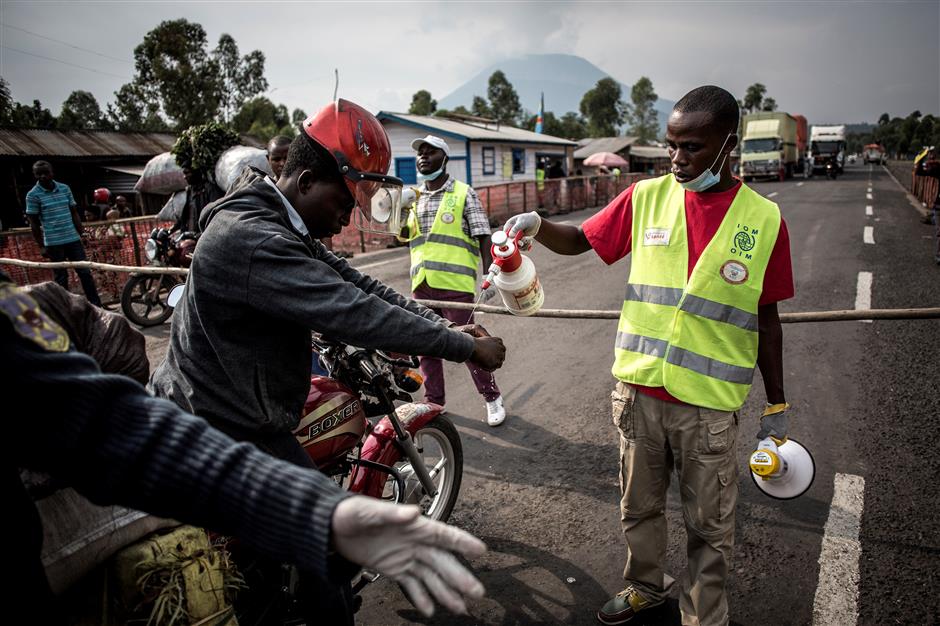WHO declares Ebola outbreak in DRC 'emergency of int'l concern'

A motor taxi driver gets his hands washed at an Ebola screening station on the road between Butembo and Goma on July 16, 2019, in Goma.
World Health Organization Director-General Tedros Adhanom Ghebreyesus on Wednesday declared the Ebola virus disease outbreak in the Democratic Republic of the Congo a Public Health Emergency of International Concern.
The declaration followed a meeting of the International Health Regulations Emergency Committee for Ebola virus disease in the DRC, the fourth of its kind since the outbreak was declared on August 1 of 2018.
The Committee made its recommendation based on recent developments, including the first confirmed case in Goma, a city of almost two million people along the border with Rwanda, and gateway to the rest of DRC and the world.
Latest UN figure showed that some 650 people have died in the current outbreak, while about 12 new cases are reported every day.
"It is time for the world to take notice and redouble our efforts. We need to work together in solidarity with the DRC to end this outbreak and build a better health system," said WHO head Tedros.
"Extraordinary work has been done for almost a year under the most difficult circumstances. We all owe it to these responders — coming from not just WHO but also government, partners and communities — to shoulder more of the burden," he noted.
Since it was declared almost a year ago, the outbreak has been classified as a level 3 emergency — the most serious — by WHO, triggering the highest level of mobilization.
The UN has also recognized the seriousness of the emergency by activating the Humanitarian System-wide Scale-Up to support the Ebola response.
However, besides recommending a PHEIC and making specific recommendations related to this outbreak, the International Health Regulations Emergency Committee for Ebola virus disease in the DRC on Wednesday also expressed disappointment about delays in funding which have constrained the response.
At the same time, the Committee reinforced the need to protect livelihoods of the people most affected by the outbreak by keeping transport routes and borders open, saying it is essential to avoid the punitive economic consequences of travel and trade restrictions on affected communities.
"It is important that the world follows these recommendations. It is also crucial that states do not use the PHEIC as an excuse to impose trade or travel restrictions, which would have a negative impact on the response and on the lives and livelihoods of people in the region," said Professor Robert Steffen, chair of the Emergency Committee.















